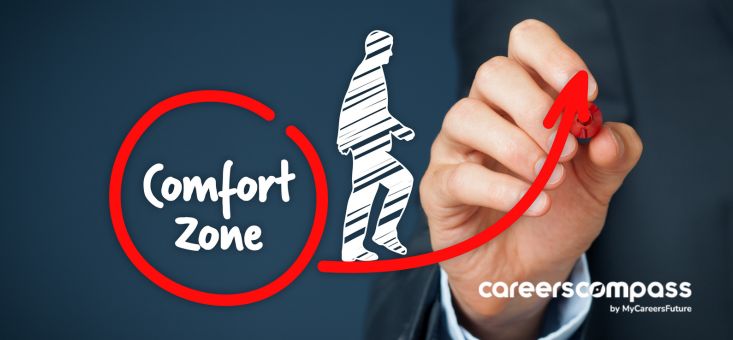In Singapore, there’s been a greater public interest and awareness in career and skills planning, which certainly augers well for local workers, given the economy and job market outlook have been showing a degree of ambiguity.
But as the saying goes, “Habits maketh the man (and woman)”. The behaviour and mentality we have when it comes to our career matters.
At Workforce Singapore’s (WSG) recent Take Charge Of Your Career at Suntec event, several speakers shared different habits that Singapore workers should adopt to move from their comfort zone and proactively build better careers. Here are some of their suggestions below.
Start looking beyond your time zone
Grace Bunardi, a speaker invited by Maximus, a career matching provider under WSG, shared career planning and work habits for Singaporeans to stay competitive in the region, particularly in the digital sector.
She said: “If you’re willing to work for companies based overseas but setting up small regional set-ups, it will open your opportunities in terms of employers globally, but of course, you’re competing regionally on the flip side.
“Some workers tend to shy away from such roles because it means having to work very late or early in Singapore time to link up with global head offices.
“But (working with teams overseas) is now part of collaboration and communication. It is a useful soft skill to get used to working with different countries, groups and cultures, as well as different ways of speaking.
“Some are more straightforward, some are more contextual or cryptic, so Singapore workers need to learn to understand how and what is being communicated, which is not always easy, especially online.”
Grace also shared how roles like these will mean working alone at home. “While there is a lot of independence in the role, not being able to see who you’re actually working with can make it harder to maintain motivation.
“But these are the pros and cons of cross-border remote work.”
Lateral skills can be a way to get into another field
During a panel discussion, Shane Yan from Growthbeans, a local social enterprise that supports the development of Singapore workers, revealed a myth she commonly hears from local jobseekers – that only those with experience in tech jobs can get into new positions in the sector.
She shared: “This isn’t necessarily true! For example, suppose you’re trying to join a company that does software development, but you don’t have a background in that specific skill. In that case, you can push other skills such as good customer and project management experience and other examples where you’ve shown good business acumen to try and get a foot in the door.”
“The truth is that most of us are better skilled than we think we are, so please don’t undervalue yourself. Whatever experiences you’ve accumulated are definitely transferable to the tech sector; it’s just about presenting them in the right way.
Don’t keep thinking you can’t compete with fresh graduates
Quite a few mid-careerists tend to feel like their skills and career stage disadvantage them against fresh graduates, according to Kaylene Wong, a director at John Ethans International, an integrated human resources firm.
But this isn’t true, she says. “Employers and hiring managers don’t look at mid-careerists in competition with fresh graduates.
“In fact, they’re looking at how such workers can complement graduates who rarely have all the full set of soft and hard skills needed at the workplace.
“Ultimately, if a mid-careerist is hired in a different field, employers are not looking for them to do the same role as a fresh graduate in the same way. Expectations and needs will be different.”
She concluded: “In fields like tech or tech-related roles, don’t forget that things change really quickly. If you are able to keep up and keep learning, you’re not just building for your next job but the job after that. So, really, upskilling and reskilling is what will keep you competitive in the job market!”















